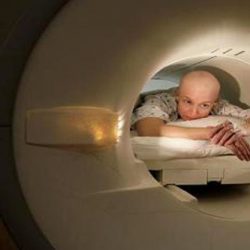New research suggests that age, race and family history are the biggest risk factors for a man to develop prostate cancer, although high blood pressure, high cholesterol, vitamin D deficiency, inflammation of prostate, and vasectomy also add to the risk. In contrast, obesity, alcohol abuse, and smoking show a negative association with the disease. Details are reported in the … [Read more...]
Cancer News

New drug for kidney cancer: A Study
A new drug has been found superior to current treatments in slowing the growth of advanced kidney cancer in patients who became resistant to the first-line therapies that had kept it in check, according to results from a clinical trial led by Dana-Farber Cancer Institute. Such patients are currently treated with everolimus (Affinitor), a second-line therapy, which can halt … [Read more...]
Fungi may lead to cheaper cancer treatment: University of Guelph Study
Cheaper anti-cancer drugs for humans might ultimately stem from a new study by University of Guelph scientists into a kind of microbial "bandage" that protects yew trees from disease-causing fungi. A new paper published in Current Biology is the first to show how beneficial fungi living naturally in yew trees serve as a combination bandage-immune system for the plant, says … [Read more...]
Dried plums can reduce risk of colon cancer: A Study
Researchers from Texas A&M University and the University of North Carolina have shown a diet containing dried plums can positively affect microbiota, also referred to as gut bacteria, throughout the colon, helping reduce the risk of colon cancer. The research was funded by the California Dried Plum Board and presented at the 2015 Experimental Biology conference in … [Read more...]
Moderate drinking linked to increased risk of some cancers in women: A Study
Even light and moderate drinking (up to one drink a day for women and up to two drinks a day for men) is associated with an increased risk of certain alcohol related cancers in women and male smokers, suggests a large study published by The BMJ today. Overall, light to moderate drinking was associated with minimally increased risk of total cancer in both men and … [Read more...]
Promising drugs for cancer: A Cancer Research UK Study
Cancer Research UK scientists have shown that a class of experimental drug treatments already in clinical trials could also help the body's immune system to fight cancer, according to a study published in the journal Cell. Scientists at the University of Edinburgh revealed that a protein called Focal Adhesion Kinase, or FAK -- which is often overproduced in tumours -- … [Read more...]
Titanium, gold based compound fights kidney cancer: University of Hawaii Study
Researchers developed a promising metal-based compound that destroys kidney cancer cells, while leaving normal cells unharmed. The findings may provide a new way of treating kidney cancer, opening the potential for more potent and less toxic therapies that would give cancer patients a better quality of life. "Kidney cancer is frequently diagnosed in the late stages when … [Read more...]
Two-drug combination shows promise against one type of pancreatic cancer: University of Florida Study
One form of pancreatic cancer has a new enemy: a two-drug combination discovered by UF Health researchers that inhibits tumors and kills cancer cells in mouse models. For the first time, researchers have shown that a certain protein becomes overabundant in pancreatic neuroendocrine tumors, allowing them to thrive. They also found that pairing a synthetic compound with an … [Read more...]
New drugs could stop growth of drug-resistant childhood tumors: A Study
Current drugs may stop working against the most common type of brain tumor in children, medulloblastoma, but the tumor could be targeted in a new way, according to Stanford University scientists. In research to be published in the journal eLife, a team led by Prof. Matthew P. Scott at the University's School of Medicine tested a drug called Roflumilast in mice with a brain … [Read more...]
LAM Lung Disease
Women in their childbearing years are the targets of a rare lung disease most of us have never even heard of called LAM — now, for the first time ever, patients have an approved treatment to keep them on their feet. There’s very little that can slow Alison Hedervary these days, but for years, she would get short of breath with any activity. Doctors weren’t concerned until … [Read more...]
Findings could shed light on cancer and aging: A Johns Hopkins University Study
Researchers at the Johns Hopkins University have found molecular evidence of how a biochemical process controls the lengths of protective chromosome tips, a potentially significant step in ultimately understanding cancer growth and aging. In a paper recently published as the cover story in the online journal eLife, biologist David C. Zappulla and graduate student Evan P. … [Read more...]
New risk score for colorectal cancer could guide selection of screening tests: Indiana University School of Medicine Study
Researchers at the Regenstrief Institute and the Indiana University School of Medicine have developed a new risk assessment scoring system that could help physicians judge which patients can forgo invasive colonoscopy testing for cancer screening and which should receive the test. According to published literature and guideline organizations, 85 percent of the population is … [Read more...]
Examination of use of diabetes drug pioglitazone and risk of bladder cancer: A Study
Although some previous studies have suggested an increased risk of bladder cancer with use of the diabetes drug pioglitazone, analyses that included nearly 200,000 patients found no statistically significant increased risk, however a small increased risk could not be excluded, according to a study in the July 21 issue of JAMA. Assiamira Ferrara, M.D., Ph.D., of Kaiser … [Read more...]
Aspirin could hold key to supercharged cancer immunotherapy: A Study
Giving cancer patients aspirin at the same time as immunotherapy could dramatically boost the effectiveness of the treatment, according to new research published in the journal Cell. Francis Crick Institute researchers, funded by Cancer Research UK, have shown that skin, breast and bowel cancer cells often produce large amounts of prostaglandin E2 (PGE2). This molecule … [Read more...]
Lung cancer patients who stop smoking live longer: A Study
Tobacco cessation provided significant survival benefit for lung cancer patients who quit smoking shortly before or after diagnosis, despite the severity of the disease. Results of the Roswell Park Cancer Institute study were published in the Journal of Thoracic Oncology. Roswell Park has a unique Tobacco Assessment and Cessation Service (TACS) that conducts a standardized … [Read more...]
Liquid biopsy identifies mutations in colorectal cancer undetected in tissue biopsy: A Spanish Study
An international, randomized, phase III study has analyzed the DNA of 503 patients with metastatic colorectal cancer by liquid biopsy (BEAMing platform) to detect KRAS, PIK3CA and BRAF gene mutations in tumors. These patients, who had previously received different treatment lines, were administered either the multi-kinase inhibitor regorafenib or placebo. Regorafenib is an … [Read more...]
Nanospheres shield chemo drugs, safely release high doses in response to tumor secretions: University of California Study
Scientists have designed nanoparticles that release drugs in the presence of a class of proteins that enable cancers to metastasize. That is, they have engineered a drug delivery system so that the very enzymes that make cancers dangerous could instead guide their destruction. "We can start with a small molecule and build that into a nanoscale carrier that can seek out a … [Read more...]
Cancer preventative surgery could become a thing of the past: A Study
Surgery to remove the breasts of women at increased risk of developing breast cancer may not be necessary in the future, according to research published in EBioMedicine. Two new studies looking at the effect the menstrual cycle has on the development of breast and ovarian cancer reveal alternative prevention strategies that may render surgery unnecessary. Breast … [Read more...]
Complex math model could be simple way to predict bladder cancer recurrence: University of Kansas Study
The ability to predict the potential recurrence of cancer would be a boon to doctors and patients, and is something Devin Koester, Ph.D., member of the Cancer Biology Program at The University of Kansas Cancer Center, is hoping to make a reality. Dr. Koestler, assistant professor within the University Of Kansas School Of Medicine's Biostatistics Department, is creating … [Read more...]
Significant risk of life-threatening blood clots in post-surgical lung cancer patients: American Association for Thoracic Surgery Study
New evidence suggests that lung cancer surgery patients are at higher risk of developing venous thromboembolism, including deep vein thrombosis (DVT) and pulmonary embolism (PE), than previously thought, with elevated risks of complications or death. When thromboemboli occur, they may be asymptomatic or attributed to post-surgical pain or complications, and may reflect both the … [Read more...]
One of the genetic pieces of bladder cancer discovered: A Spanish Study
Notch genes are a double-edged sword: in some cancers they have a harmful effect because they promote tumour growth, whilst in others they act as tumour suppressors. The reason is still unclear, making it impossible to predict the behaviour of Notch within each tumour, and complicating its use as a drug target. Now, CNIO researchers clear this dilemma up for bladder cancer, in … [Read more...]
Smoking may increase risks for patients with prostate cancer: A Study
Among patients with prostate cancer, those who smoke have increased risks of experiencing side effects from treatment and of developing future cancer recurrences, or even dying from prostate cancer. The findings, which are published in BJU International, suggest that smoking may negatively affect the health outcomes of patients with prostate cancer and may contribute to … [Read more...]
New guidelines address long-term needs of colorectal cancer survivors
New American Cancer Society Cancer Survivorship Care guidelines released provide primary care clinicians with recommendations for providing comprehensive care to the estimated 1.2 million survivors of colorectal cancer in the United States. The guidelines are the second to be published in a series of cancer survivorship care guidelines developed by the American Cancer … [Read more...]
Defective telomeres are linked to diseases and cancer: A Spanish Study
Studying telomeres, the structures that protect the ends of chromosomes, has become a key issue in biology. In recent years, not only has their relation to ageing been confirmed; defective telomeres seem to be linked to more and more illnesses, including many types of cancer. The review published by Paula Martínez and María Blasco from the CNIO in Trends in Biochemical … [Read more...]
Cancer Discovery: Protein modification determines enzyme’s fate: University of Pennsylvania Study
The human genome encodes roughly 20,000 genes, only a few thousand more than fruit flies. The complexity of the human body, therefore, comes from far more than just the sequence of nucleotides that comprise our DNA, it arises from modifications that occur at the level of gene, RNA and protein. In a new study, researchers from the University of Pennsylvania School of … [Read more...]
Increased radiation offers no survival benefit for patients with low-risk prostate cancer: University of Pennsylvania Study
Increased radiation dose is associated with higher survival rates in men with medium- and high-risk prostate cancer, but not men with low-risk prostate cancer, according to a new study from Penn Medicine published in JAMA Oncology. Already-high survival rates for men with low-risk prostate cancer were unaffected by higher radiation dosages compared to lower radiation … [Read more...]
‘NanoGap’ for early detection of bladder and kidney cancer under development: A Dutch Study
A new mobile device that allows bladder and kidney cancer to be detected at an early stage. This is being worked on by Wilfred van der Wiel, professor of nanoelectronics at the University of Twente MESA+ research institute. Thanks to this method, it is possible to read from DNA cells whether their carrier has bladder or kidney cancer. Van der Wiel recently received an ERC … [Read more...]
Bone cancer surgical team sees success in new application of surgical aid: A Study
An ortho-oncology team at Dartmouth-Hitchcock Norris Cotton Cancer Center successfully adapted a shoulder surgical aid (the Spider Limb Positioner) to conduct a left hip disarticulation on a melanoma patient as described in a case report published online inMedical Devices. The Spider Limb Positioner is a pneumatic arm with three fully articulating joints that can be … [Read more...]
Resveratrol, quercetin could provide new options for cancer therapy: Oregon State University Study
Resveratrol and quercetin, two polyphenols that have been widely studied for their health properties, may soon become the basis of an important new advance in cancer treatment, primarily by improving the efficacy and potential use of an existing chemotherapeutic cancer drug. Resveratrol, a powerful antioxidant found in red wine and other foods, has already received much … [Read more...]
Moderate hormone suppression may be enough in thyroid cancer: University of Colorado
A study of long-term thyroid cancer outcomes shows, among other findings, that moderate suppression of thyroid-stimulating hormone (TSH), which drives the disease, may be as beneficial as more extreme hormone suppression. Extreme TSH suppression is associated with increased side effects including osteoporosis and heart rhythm irregularities. Results are published online ahead … [Read more...]
- « Previous Page
- 1
- …
- 6
- 7
- 8
- 9
- 10
- …
- 37
- Next Page »



























